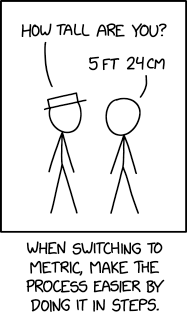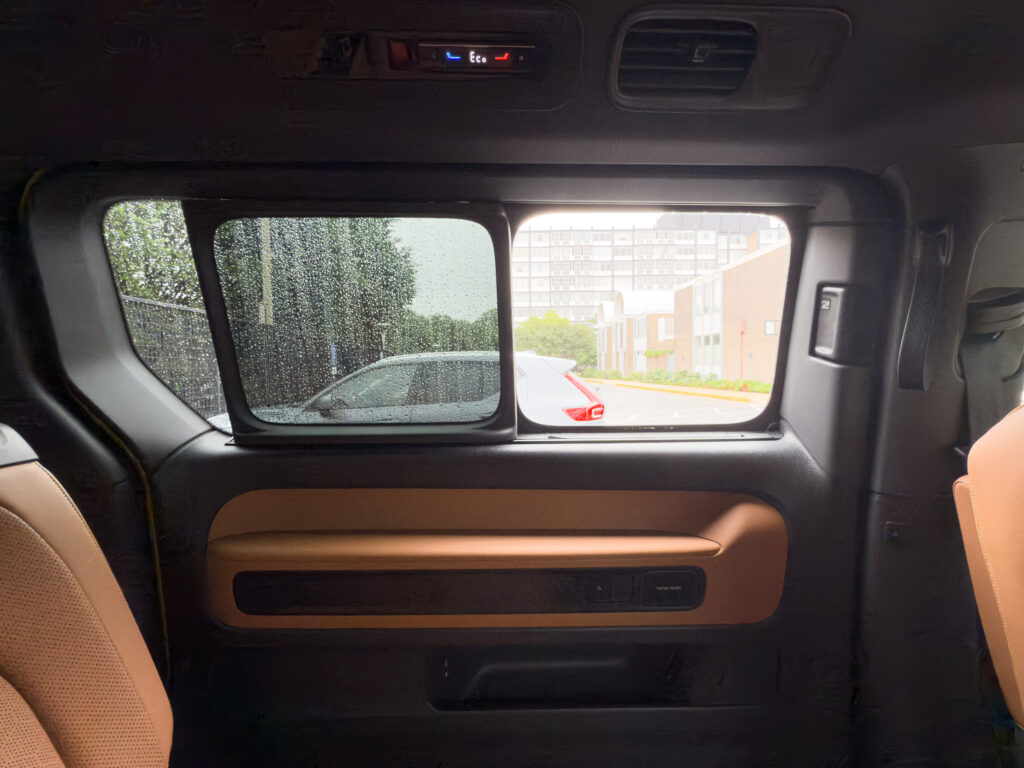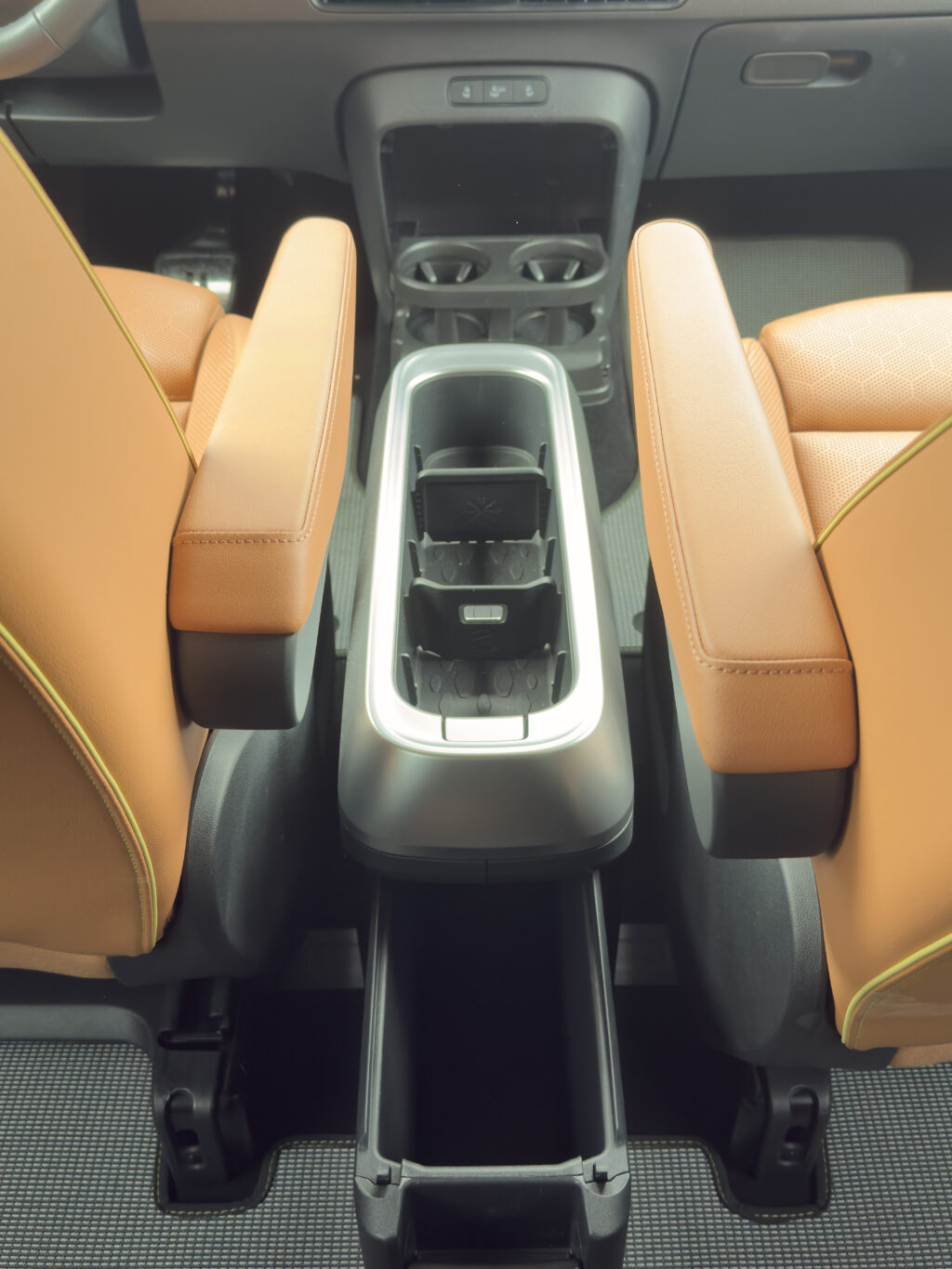
Sean Hollister, reporting for The Verge back in February:
Two weeks ago, we exclusively reported Meta CEO Mark Zuckerberg’s remarks on how many pairs of Ray-Ban Meta smart glasses the company had recently sold and might theoretically sell: 1 million pairs in 2024, with the possibility of reaching 2 million or even 5 million by the end of 2025.
But glasses giant EssilorLuxottica, which produces those glasses for Meta, has now publicly revealed 2 million pairs of Meta Ray-Bans have sold since their October 2023 debut, and that it’s aiming to produce 10 million Meta glasses each year by the end of 2026.
I mocked a report from Counterpoint Research this week for its Bezos Numbers on smart glasses sales growth. Here are some real numbers from the current market leader. For context, Steve Jobs’s stated goal for the iPhone, at launch in mid-2007, was 10 million iPhones sold by the end of 2008 — a goal they reached before the holiday quarter of 2008 even started.
I feel close to certain that smart glasses are going to be a big product category. But they’re not there yet. A few million units is something, but it’s not a hit. Given the current capabilities — a camera on your face, speakers on the temples, and a microphone for talking to the system — I don’t see how they currently beat a smartphone and wireless earbuds. If you already carry a phone and earbuds everywhere you go, when would you want Meta Glasses? For taking lower-quality photos and videos, and listening to lower-quality audio? I don’t think the product category is going to take off until there’s a visual HUD in the lenses, and that still seems years away, at any price.
The Ray-Ban Meta smart glasses are a hands free way to take pictures and interact with AI agents. They aren’t perfect but I’d argue they make a great accessory to a smart phone and they allow me to leave my phone in my pocket more often.
Yes, I still carry Air Pods Pro with me. In noisy environments the glasses speakers get overwhelmed.
If you had asked me a few years ago, I would have told you that the review you're about to read would be one of the most-read car reviews of the year. For a while—quite a long while, in fact—the Volkswagen ID Buzz was the hottest electric vehicle you couldn't buy. Starting in 2001, VW began teasing concept after concept that called back to its various Transporters and Kombis, classic microbuses reimagined as modern minivans. When the electric Buzz was greenlit for production after wowing crowds in 2017, it caught the attention of the kind of people who don't normally care about such things. Early coverage of the Buzz showed plenty of interest, and it looked like VW might have a real hit on its hands.
At least, that's how things looked for the first couple of years. It actually took seven years for a version of the ID Buzz to go on sale in North America, two years after Europe. Much of the optimism about EV adoption has now gone. Rather than reaching price parity with regular cars as battery prices dropped, everything just got more expensive during the pandemic. Add in recent worries about import tariffs and clean vehicle tax credits (available if you lease), and you start to understand why they remain a rare sight on the roads. Expect stares, glances, and even people taking out their phones as you drive past.
Some of the wait was for VW's more powerful rear drive unit, which provides this 2025 ID Buzz Pro S Plus with 282 hp (210 kW) and 413 lb-ft (560 Nm), paired with a 91 kWh battery pack. The official EPA range is 234 miles, which sounds disappointingly low, but it's correct. It does seem like a very conservative estimate based on a week with the Buzz. 3.1 miles/kWh (20 kWh 100/km) was possible if I drove carefully, with high-twos possible when I didn't, and with 89 percent state of charge in the battery, the Buzz's onboard brain figured we had 255 miles (410 km) of range.


The fast charging stats are acceptable for a 400 V powertrain. VW quotes 30-minute fast-charging from 10 to 80 percent, with the battery able to accept peak rates of 170 kW. In practice, I plugged in with 35 percent SoC and reached 80 percent after 21 minutes. Meanwhile, a full AC charge should take 7.5 hours.
You want plenty of space in a minivan, and there's a huge amount here. In the US, we only get a three-row version of the Buzz, which offers features that the two-row, Euro-only version can't, like air vents and opening windows in the back. There are also a plethora of USB-C ports. You sit up high, with an H-point (where your hip goes) that's a few inches above that of other minivan drivers.
One of the downsides of that large battery is the extra height it adds to the Buzz, although a tight turning circle and light steering mean it's never a chore to drive. However, getting in could be a little simpler for people on the smaller end of the spectrum if there were grab handles or running boards.
The width shouldn't prove a problem, given the number of commercial Buzzes you now see working as delivery vans or work trucks in Europe these days. The bluff front and large frontal area may also explain the wind noise at highway speeds, although that can easily be drowned out by the sound system (or two rows of children, perhaps). Driving slowly, and therefore efficiently, is made simpler by the lack of side bolstering of the seats and that high H-point that magnifies any amount of roll when cornering.









Both middle and third row are viable places to put fully grown adults, even for long drives. The specs actually give the third row the edge, with 42.4 inches (1,077 mm) of legroom versus 39.9 inches (1,014 mm) for the middle row, and VW had to issue a recall because the rear bench is slightly wider than federal rules allow if you only have two seatbelts.
Neither middle nor third row is removable, as in conventional minivans. Instead, the seats can be folded flat; the middle row splits 60:40, the third row 50:50. There's up to 145.5 cubic feet (4,106 L) of cargo volume with both rows folded flat. With just the third row flat, you still have 75.5 cubic feet (2,138 L), or 18.6 cubic feet (526.7 L) with the third row in use. The center console, with its various cubbies and slide-outs, is removable, which also helps boost the sense of interior volume.
Although VW did well in keeping the three-row, big battery Buzz close in price to the Euro two-row, a starting price of $59,995 is still more expensive than the minivans you can buy from Kia, Honda, or Chrysler, and our test Buzz had a sticker price of $66,040 with options ($995 for the two-tone paint) and destination charge ($1,550). It comes with a high level of standard equipment for the money, both in terms of active and passive safety tech and in conveniences like wireless charging, remote door opening, a heads-up display, and so on. And the "Copper" interior is a brighter alternative to black but still far more sensible for a minivan than the white of the launch edition.
The ID Buzz's price premium over the three other minivans you can buy in the US is mostly due to its electric powertrain, which means that someone looking for an EV minivan has no other real choices. But it looks good, and I'm confident in saying the Buzz has a more cavernous third row than any of the non-EV alternatives.

I’m old enough that I remember voting in the Seventies. I never miss a chance to vote so that’s a lot of elections. In all but one or two my vote has gone to the NDP, Canada’s social democrats. There’s a provincial election Saturday, and I’ll be voting Green, against the current NDP government.
It’s not complicated: I’ve become a nearly-single-issue voter. The fangs of the climate monster are closing on us, and drastic immediate action is called for by all responsible governments to stave them off.
The BC NDP has followed its unlamented right-wing predecessor in making a huge energy bet on fossil fuels, “natural” gas in particular, and especially LNG, optimized for export. “Natural” gas, remember, is basically methane. The fossil-fuels mafia has greenwashed it for years as a “better alternative”, and a “bridge to the renewable future”. Which is a big fat lie; it’s been known for years to be a potent greenhouse gas, and recent research suggests it’s more damaging than coal.
Tilbury
That was the LNG project that made me snap. Here is coverage that tries to be neutral. Tilbury was sold as being a good thing because LNG is said to have a lighter carbon load than the heavy bunker fuel freighters usually burn. Supposing that to be true, well so what: The terminal mostly exists to pump locally-extracted methane to the rest of the world. Check out Tilbury’s first contract, for 53,000 tons of LNG a year off to China, with no indication of what it will be used for and plenty of reason to believe it will end up heating buildings, which should instead should be moving to renewable options.
Tilbury is just the latest chapter of the successful march of LNG infrastructure through the minds of successive BC governments; I’ll spare you the long, dispiriting story (but I won’t forget it in the polling booth).
I don’t believe it’s oversimplifying to say that essentially everything the fossil-fuel industry says is a pack of self-serving planet-destroying lies. Why would I vote for a party that apparently believes those lies?
The Carbon Tax
Post-Tilbury, I was probably 60% of the way to splitting with the NDP when they announced they were ready to drop the carbon tax. It is hard to find an economist who does not believe that a carbon tax is one of our sanest and most powerful anti-GHG policy tools. BC has been a North-American leader in instituting and maintaining a carbon tax. So, that sealed the deal. Bye bye, NDP.
What’s happening is simple enough: Canada’s right-wing troglodytes have united around an anti-Carbon-tax platform, chanting “axe the tax”. And our NDP has waved the chickenshit-colored tag of surrender. You can pander to reactionary hypocrites, or you can help us do our bit for the world my children will inherit, but you can’t do both. Bye.
The Greens
Their platform is the kind of sensible social-democratic stuff that I’ve always liked, plus environmentalist to the core. Leader Sofia Furstenau is impressive. It wasn’t a hard choice.
But tactical voting!
It’s been a weird election, with the official opposition party, center-rightists who long formed the government, changing their name (from “Liberals” to “United”) midstream, then collapsing. This led to the emergence of the BC Conservative Party, a long-derided fringe organization famous for laughable candidates, thick with anti-vaxxers, climate deniers, anti-wokesters, anti-LGBTQ ranters, and multiple other flavors of conspiracy connoisseur.
Guess what: That’s what they still are! But much to everyone’s surprise, they’re running pretty close to neck and neck with the NDP.
So people like me can expect to be told that by abandoning the NDP, we’re in effect aiding and abetting the barbarians at the gate. (To be fair, nobody has actually said that to me. The strongest I’ve heard is “it’s your privilege to waste your vote.”)
But what I see is two parties neither of which have any concern for my children’s future, and one which does. If it’s wrong to vote on that basis, I don’t want to be right.

